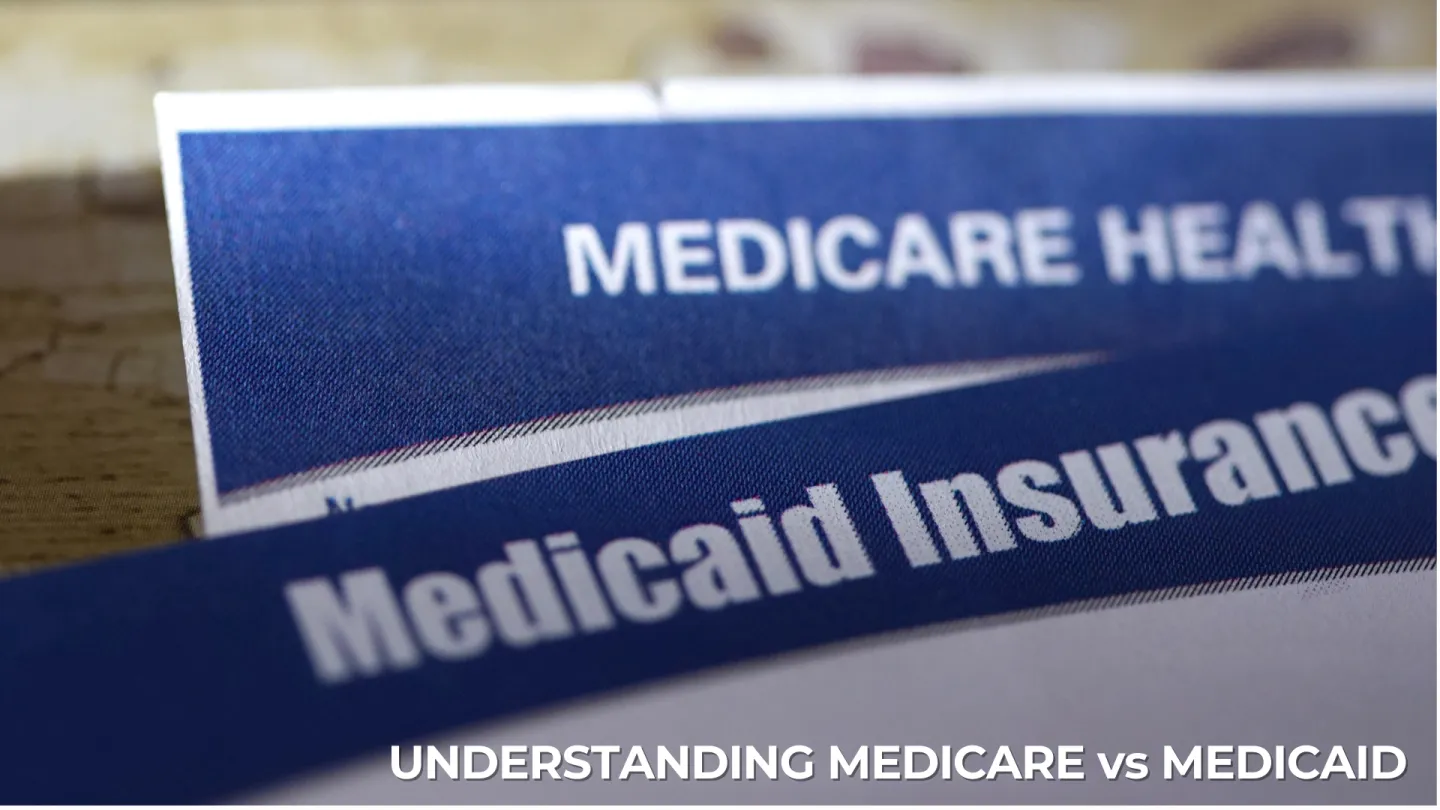Navigating the complexities of elder care can be overwhelming, especially when it comes to understanding the differences between Medicare and Medicaid. These two programs play crucial roles in supporting the health and financial well-being of seniors, but they serve different purposes and have distinct eligibility requirements. In this blog, we’ll break down the key differences between Medicare and Medicaid, with a particular focus on how these programs operate in New York and New Jersey.
What is Medicare?
Medicare is a federal health insurance program primarily for people aged 65 and older, although it also covers certain younger individuals with disabilities or specific diseases. Medicare is divided into four parts:
- Part A (Hospital Insurance): Covers inpatient hospital stays, care in a skilled nursing facility, hospice care, and some home health care.
- Part B (Medical Insurance): Covers certain doctors’ services, outpatient care, medical supplies, and preventive services.
- Part C (Medicare Advantage Plans): A type of Medicare health plan offered by private companies that contract with Medicare to provide all Part A and Part B benefits.
- Part D (Prescription Drug Coverage): Adds prescription drug coverage to original Medicare and some Medicare Advantage Plans.
Key Points:
- Eligibility: Medicare is generally available to individuals who have worked and paid into the Social Security system for at least 10 years.
- Costs: While Medicare Part A is usually premium-free for eligible individuals, Parts B, C, and D may require monthly premiums, deductibles, and co-payments.
- Coverage Limitations: Medicare does not cover long-term care, such as custodial care in a nursing home or assisted living facility.
What is Medicaid?
Medicaid is a joint federal and state program that helps with medical costs for people with limited income and resources. Unlike Medicare, Medicaid can cover long-term care services, making it a crucial resource for seniors who need ongoing assistance.
Key Points:
Protect What You Have Worked For
Securing your assets requires a proactive legal strategy. Speak with an experienced asset protection lawyer today to safeguard your future.
- Eligibility: Medicaid eligibility is based on income and assets, which vary by state. In general, to qualify, seniors must have limited financial resources.
- Costs: Medicaid typically covers a broader range of services than Medicare, including long-term care, with little to no out-of-pocket costs for eligible individuals.
- Long-Term Care: Medicaid is the primary payer for long-term care services, including nursing home care and in-home care, for eligible seniors.
Medicaid in New York and New Jersey
While Medicaid is a federal program, it is administered by each state, leading to variations in eligibility requirements and benefits. Here’s a closer look at Medicaid in New York and New Jersey:
New York:
- Medicaid Expansion: New York has expanded Medicaid under the Affordable Care Act, meaning more low-income individuals, including seniors, may qualify.
- Medicaid Long-Term Care Services: New York offers a variety of long-term care services through Medicaid, including nursing home care, personal care services, and home health care.
- Asset Limits: New York has relatively high asset limits for Medicaid eligibility compared to other states, allowing more seniors to qualify. However, there are still strict rules regarding income and asset transfers to prevent Medicaid fraud.
New Jersey:
- Medicaid Expansion: Like New York, New Jersey has expanded Medicaid, increasing access for low-income seniors.
- Medicaid Managed Long-Term Services and Supports (MLTSS): New Jersey provides long-term care services through MLTSS, which includes nursing home care, assisted living, and home and community-based services.
- Look-Back Period: New Jersey enforces a five-year look-back period when determining Medicaid eligibility for long-term care, meaning any asset transfers within five years of applying for Medicaid may result in a penalty period during which benefits are denied.
Key Considerations for Seniors
Understanding the differences between Medicare and Medicaid is essential for seniors and their families as they plan for the future. Here are some tips to consider:
- Plan Ahead: Since Medicaid has strict eligibility requirements, it’s important to plan ahead. This might involve consulting with an elder law attorney to explore options such as asset protection and estate planning.
- Understand the Look-Back Period: Be mindful of the Medicaid look-back period, especially in New York and New Jersey. Improperly transferring assets could result in a penalty that delays eligibility for long-term care coverage.
- Explore Dual Eligibility: Some seniors may qualify for both Medicare and Medicaid, known as dual eligibility. In this case, Medicaid can help cover costs that Medicare does not, such as long-term care.
- Stay Informed About State-Specific Rules: Since Medicaid is administered at the state level, the rules and benefits can vary significantly. It’s crucial to understand the specific guidelines in New York and New Jersey to maximize the benefits available.
Conclusion
Medicare and Medicaid are both vital programs for seniors, but they serve different roles in elder care. Medicare provides broad health insurance coverage, while Medicaid offers crucial support for long-term care needs. For seniors in New York and New Jersey, understanding the nuances of these programs is key to making informed decisions about their health and financial well-being. Consulting with an elder care attorney can provide invaluable guidance in navigating these complex systems and ensuring that you or your loved ones receive the care and support needed.







